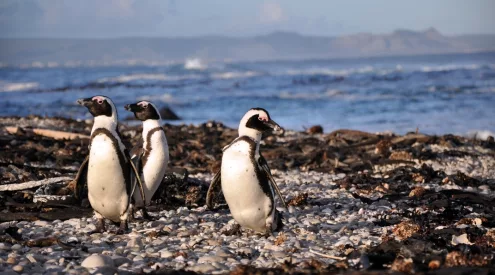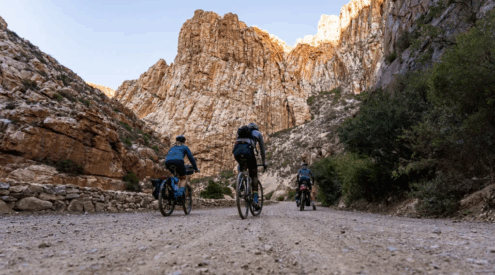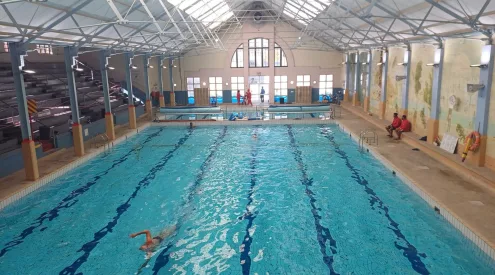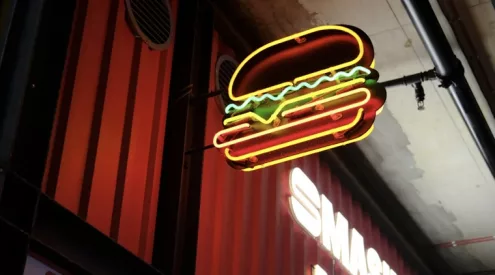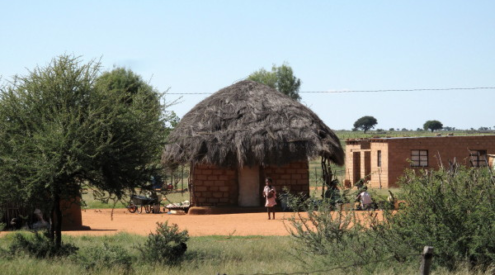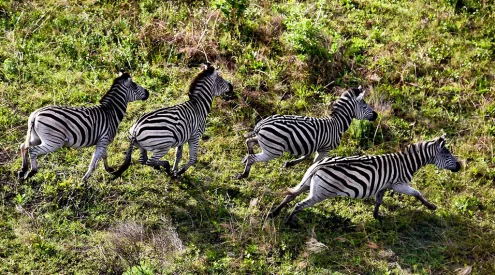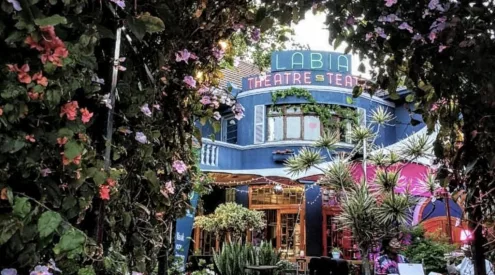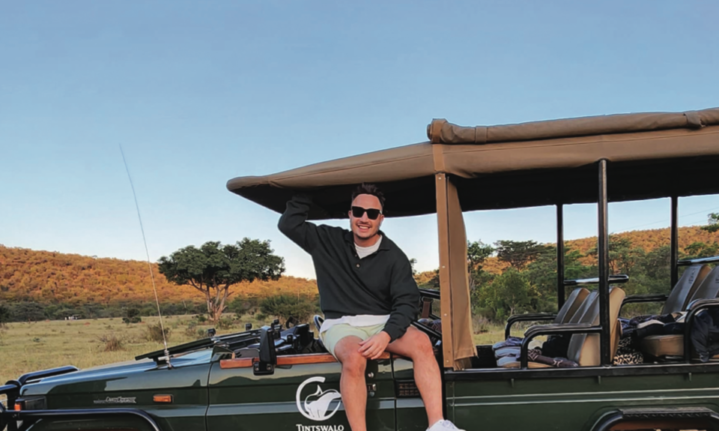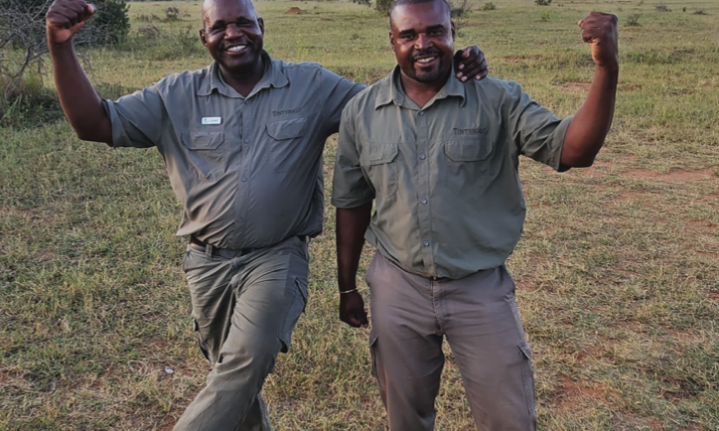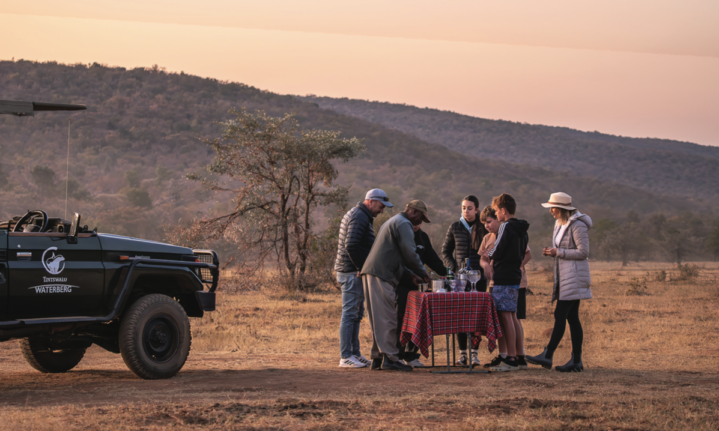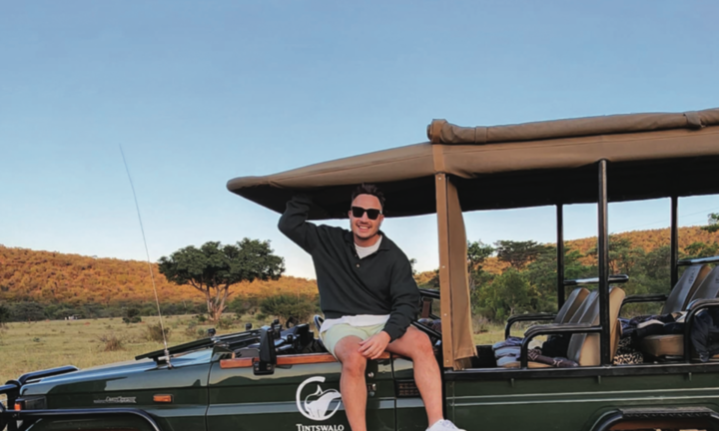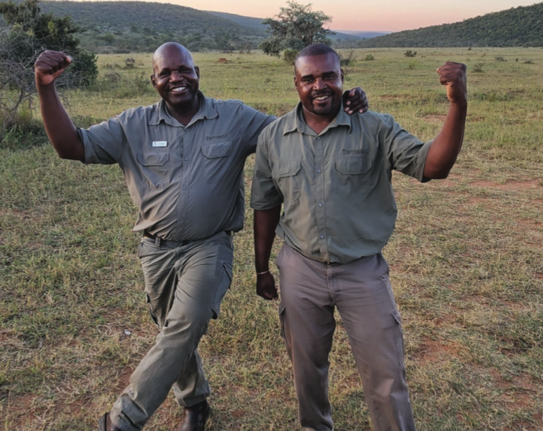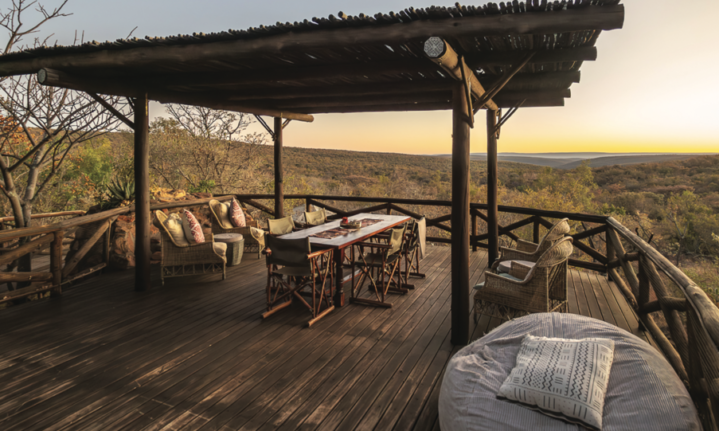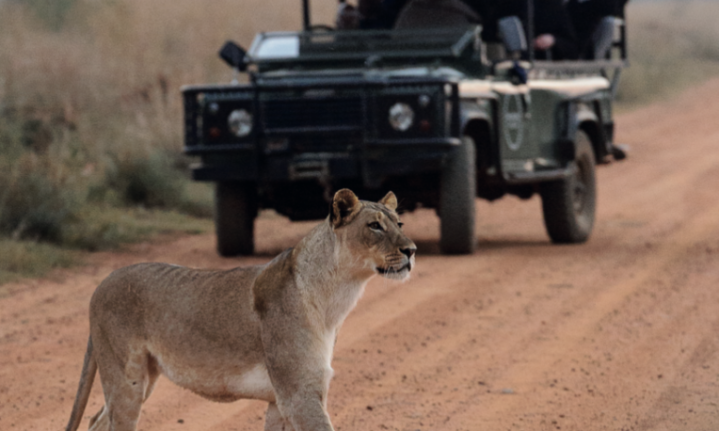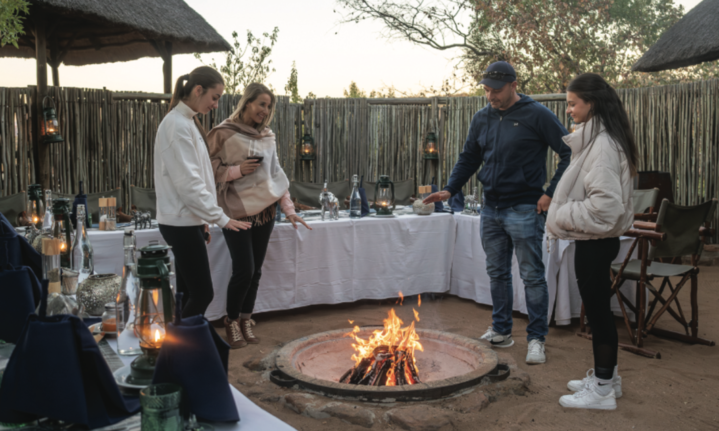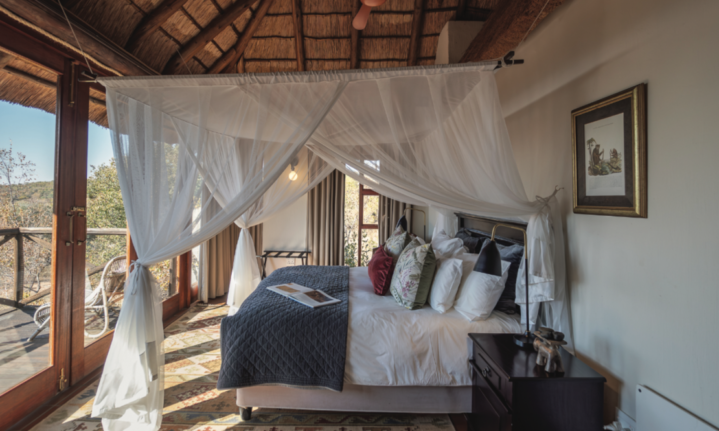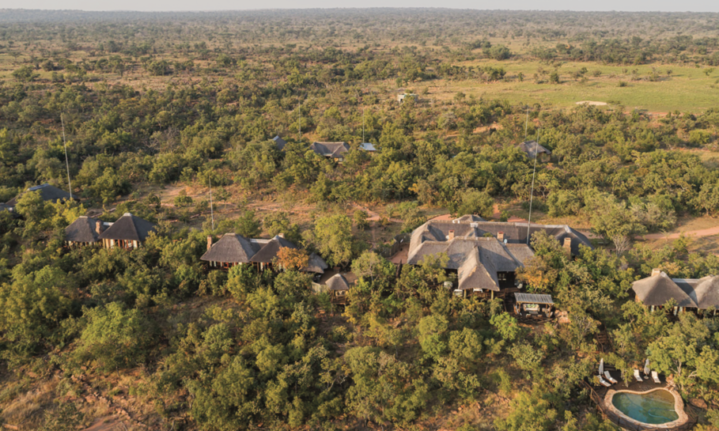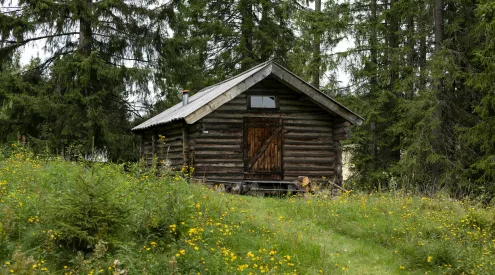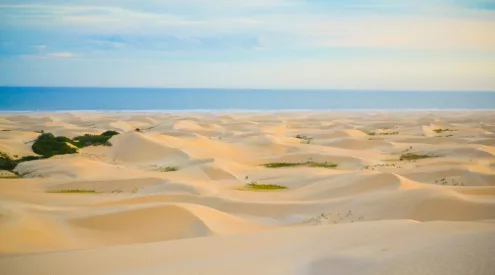Can losing yourself in an expansive landscape inhabited by a rich diversity of wildlife allow you to regain yourself? Ryan Vrede ponders the answer to this question while visiting Tintswalo Waterberg.
ALSO SEE: 10 Majestic mountain passes to drive in South Africa
Can a safari save your life? I hoped that would happen when I packed my suitcase for a three-day trip to Tintswalo Waterberg, in the Welgevonden Game Reserve, Limpopo. I’d decided well before leaving to be selfish. I needed to be. In the four years that preceded the trip, I’d given all of myself to things other than myself. I was depleted, depressed and disillusioned.
I’d taken breaks in that period, but nothing significant, certainly nothing that helped me feel like myself again. I probably hadn’t helped myself by defaulting to the belief that taking breaks equates to laziness, gripped by passivity and showing a profound lack of ambition, which, I’ve learnt, is treacherous and self-destructive.
I’d not been on a safari for a few years. That experience, at a luxury lodge around an hour and a half outside of KwaZulu-Natal, was good but vastly different given my headspace.
For this one, I’d purposed to sit alone on the flight from Cape Town to Johannesburg and do so again for the three-hour journey from the airport to Welgevonden and the approximate hour’s drive from the Reserve gate to Tintswalo Waterberg. I’d also positioned myself in the last row of seats for all game drives. That isn’t to say I was anti-social: far from it. I thoroughly enjoyed the company of four media colleagues who made that trip, including sharing world-class meals served on the lodge’s deck that boasts spectacular views of the Reserve.
But I also strategically chose solitude when I could. The Reserve makes you feel small in the most beautiful way. The vast landscape features deep ravines, soaring rock formations and kilometres-long open plains. I’d often find myself marvelling at the impossible beauty that surrounded me. I have photographs and videos from the experience, but for the most part, I was disconnected from my phone to connect with the experience fully.
I’d listen to our guides, DJ and Mpho, and be awed by their knowledge and depths of competency. To master anything in life takes a degree of investment and sacrifice that most people aren’t willing to make. They’ve mastered the art and science of their craft, and it translates into a guest experience that transcends any I’ve had on a safari.
I’ve learnt that there’s a significant difference between guides who need the bush for personal contentment and those doing a job to make ends meet. In a private conversation, DJ recalled two years when he worked a clutch of different jobs in central Johannesburg. ‘It was the most miserable time of my life,’ he admitted. ‘I’m a child of the bush. It is where I feel most happy and at peace. So, I told my wife and kids I had to go back. This [the Reserve] is my home.’ I needed a reminder not to compromise what made me happy.
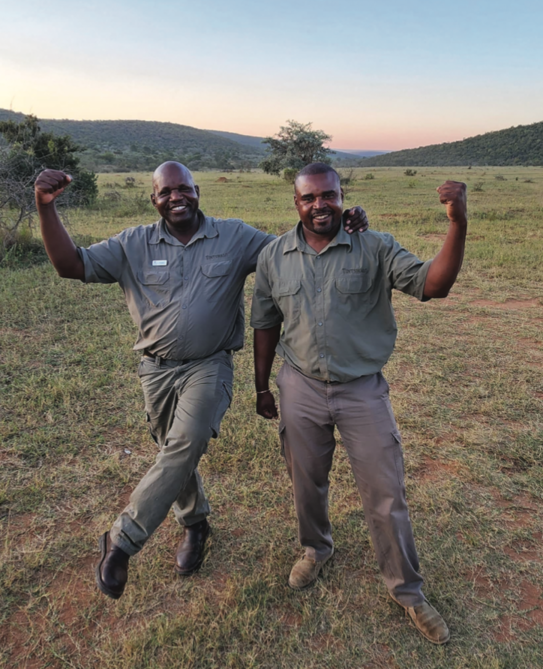
Guides DJ and Mpho are an integral part of the guest experience.
Later that evening, at a dinner hosted in Tintswalo’s boma, DJ and the lodge’s staff treated guests to a traditional African performance. He summoned me to join him in song. Comfort zone pierced. Initially, I was reluctant, but DJ is a persuasive man and insisted. I’m grateful to him because I’ll carry the experience for life, and the moment released me from a prison of caring too much about what other people think of me.
We set out on a game drive at 5.30 am the following day and watched the sun paint the African sky. I’d usually be asleep then or lying in bed, trying to find the motivation to face the day. But sitting at the back of that game vehicle, coffee in hand, searching for animals usually elusive during daylight, renewed my spirit.
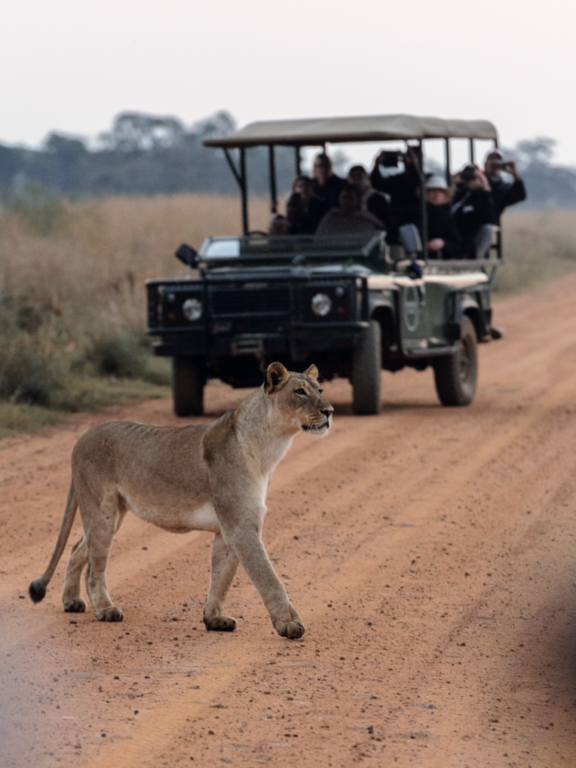
We watched a pride of lions feeding on a wildebeest for an hour and then another 30 minutes gripped by the youngsters stalking more potential meals. ‘These kids don’t know how to hunt yet,’ DJ said with a knowing chuckle. ‘They spend months and months watching their elders hunt before they finally get good.’ Proof of his assertion came later that day when we watched a baby warthog successfully scramble for its life after a young lion erred in assessing how close it needed to be to its prey before launching an attack. Warthogs are damn fast, certainly fast enough to evade being dinner if you announce your presence from 20 m away.
Everywhere we looked were reminders of the animal kingdom’s beautifully brutal transactions. A buck carcass lay close to the Reserve’s private airstrip. ‘We don’t know what happened to it, but we think it may have been bitten by a snake,’ Mpho offered. Snakes are a fear of mine, so this stayed with me. Secretly, I celebrated when the group decided against searching for an African rock python, a bucket-list item one of our group requested. ‘They are here, and they’re biiiiiiggggg,’ DJ later told me, gesturing in a way that filled me with dread and curiosity in equal measure. I was meticulous about watching my step, particularly at night, on the 30-m walk from my room to the lodge’s main centre. Tintswalo is fenced in, protecting guests from dangerous wildlife. But snakes didn’t get the memo, and while our hosts assured me they are rarely sighted, I wasn’t prepared to take any chances.
My fear did nothing to diminish my experience, though. After dinner, I’d retire to a suite that blended rustic charm and modernity. I shared the Roller Bird Suite with a colleague. As it accommodates up to six adults, we had ample space and privacy, including a dedicated bathroom. The Suite also has an outdoor shower – which I avoided using in case of a close encounter with a snake.
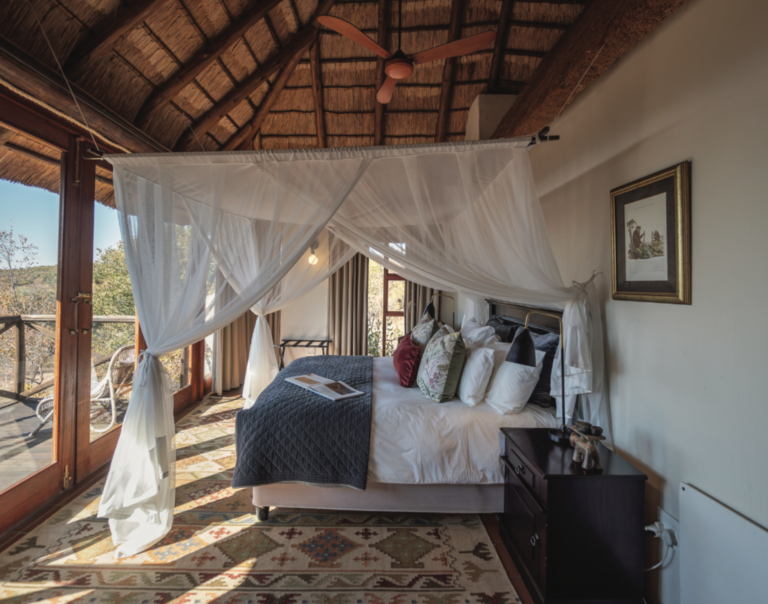
The lodge is family-friendly. Many of my friends are couples with kids with whom I could see making incredible memories together at Tintswalo because they offer activities tailored for kids, freeing parents to drink gin and tonics at 10 am, and a big group of family or friends can book the entire lodge.
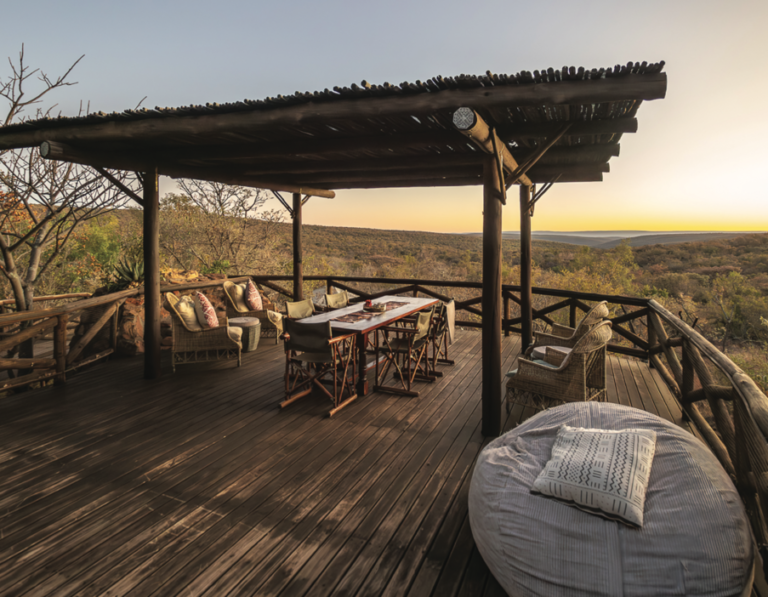
Before our game drives each morning, I’d spend time journaling on my suite’s deck. I used that time to reflect on and find gratitude in my journey. Reading those notes shortly after my return, I realised the trip had been fundamentally transformative. On day one, there were three things on my gratitude list. By day three, I had filled two pages.
Sitting at the back of that game vehicle, sometimes watching hippos laze in the sun on a riverbank, or being within touching distance of rhinos slowly grazing under the shade of a large tree, tracking elephants as they traversed the Reserve, scanning dense vegetation, hoping to sight a leopard, awed at a buffalo’s sheer size and power, or whether I was lost in my head staring into nothing but kilometre upon kilometre of open plains, I found myself.
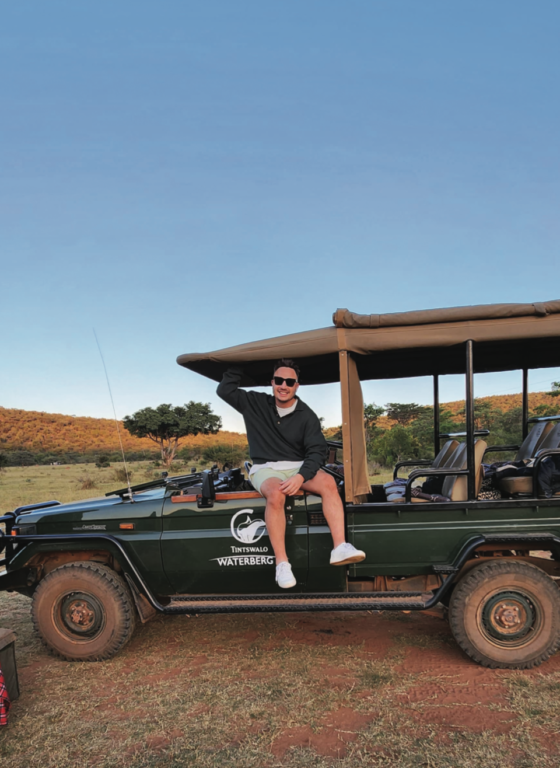
Ryan Vrede had a transformative experience at Tintswalo Waterberg.
Can a safari save your life? Can losing yourself in an expansive landscape inhabited by a rich diversity of wildlife allow you to regain yourself? While not true of every safari, this one gave me both gifts.
ALSO SEE: Giraffe fails to flee from four hungry lions latching onto its legs
Follow us on social media for more travel news, inspiration, and guides. You can also tag us to be featured.
TikTok | Instagram | Facebook | Twitter

